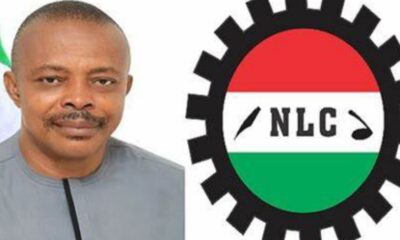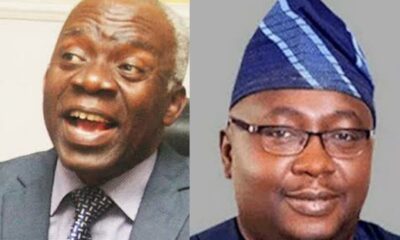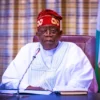President Joe Biden announced on Monday that the United States alongside 12 countries has joined a new trade pact that the White House says will help the United States work more closely with Asian economies on issues including supply chains, digital trade, clean energy, and anti-corruption efforts.
The signatories joining the U.S. in the Indo-Pacific Economic Framework are Australia, Brunei, India, Indonesia, Japan, South Korea, Malaysia, New Zealand, the Philippines, Singapore, Thailand, and Vietnam. Along with the United States, they represent 40% of world GDP.
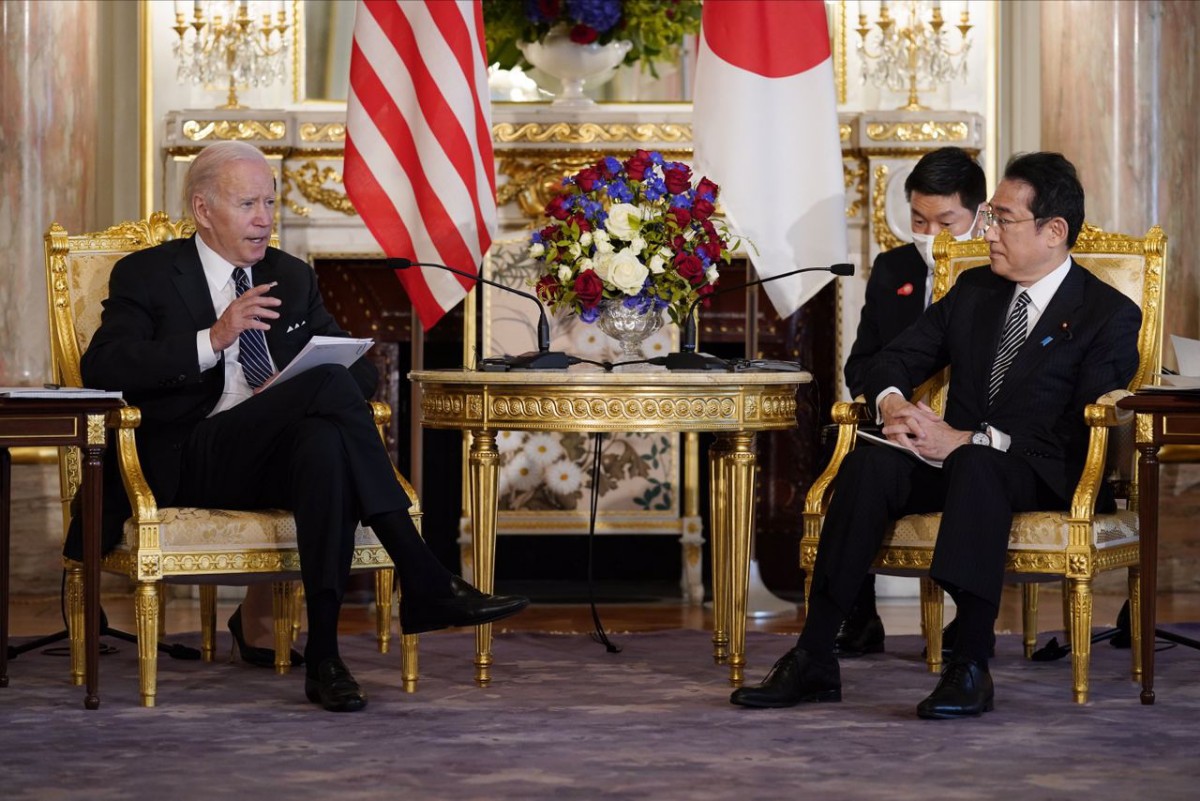
The countries said in a joint statement that the pact will help them collectively “prepare our economies for the future” following disruptions from the coronavirus pandemic and the Russian invasion of Ukraine.
Critics say the framework has gaping shortcomings. It doesn’t offer incentives to prospective partners by lowering tariffs or providing signatories with greater access to U.S. markets. Those limitations may not make the U.S. framework an attractive alternative to the Trans-Pacific Partnership, which still moved forward after the U.S. bailed out.
Biden, speaking at a news conference after holding talks with Japan’s Prime Minister Fumio Kishida, acknowledged the U.S. economy has “problems” but said they were “less consequential than the rest of the world has.”
He added: “This is going to be a haul. This is going to take some time,“ even as he rejected the idea a recession in the U.S. was inevitable.
The comments came just before Biden’s launch of the Indo-Pacific Economic Framework, a new trade deal his administration designed to signal U.S. dedication to the contested economic sphere and to address the need for stability in commerce after disruptions caused by the pandemic and Russia’s invasion of Ukraine.
Biden and Kishida were joined by Indian Prime Minister Narendra Modi while representatives from the other countries appeared by video to help launch the pact. Modi was in Tokyo for Tuesday’s meeting of the Quad, a security grouping that also includes the U.S., Japan, and Australia.
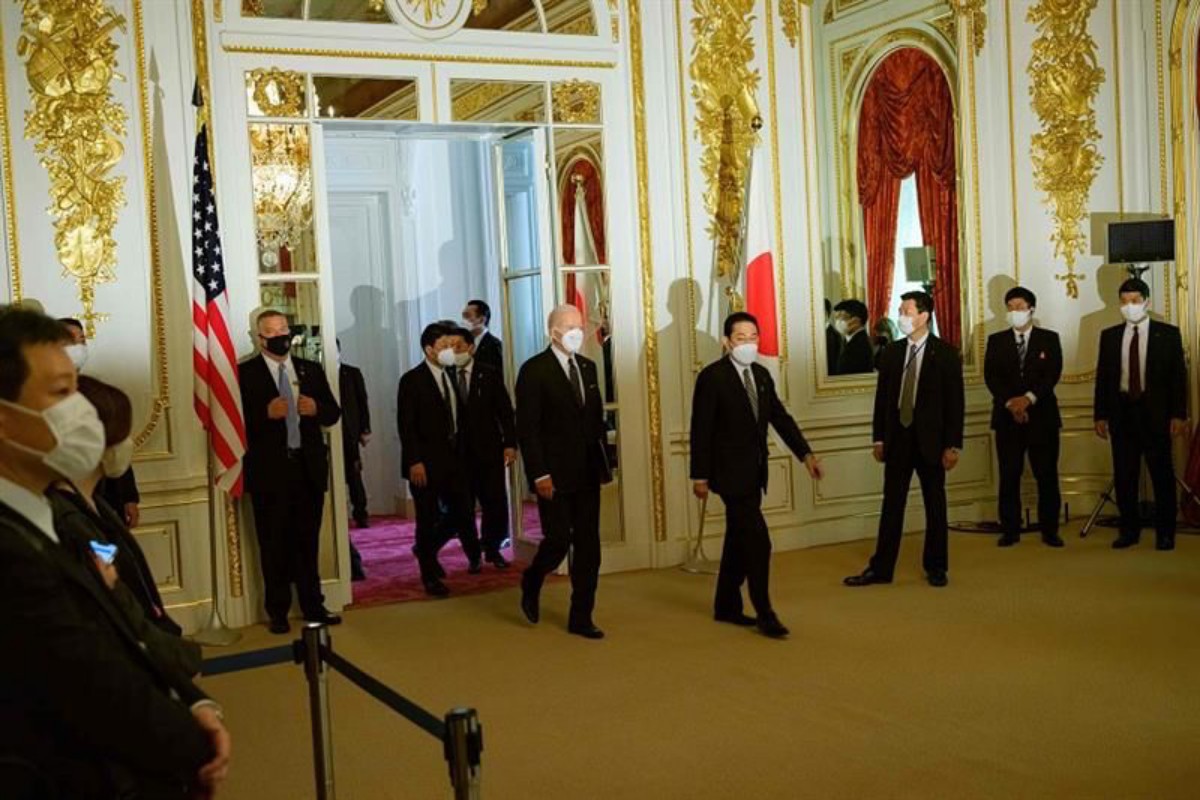
The White House said the framework will help the United States and Asian economies work more closely on issues including supply chains, digital trade, clean energy, worker protections, and anti-corruption efforts. The details still need to be negotiated among the member countries, making it difficult for the administration to say how this agreement would fulfill the promise of helping U.S. workers and businesses while also meeting global needs.
Biden will wrap up his five days in Asia on Tuesday with the Quad meeting and one-on-one talks with India’s Prime Minister Narendra Modi and Australia’s new prime minister, Anthony Albanese.
And earlier this month, Biden gathered representatives from nine of the 10 members of the Association of Southeast Asian Nations in Washington for a summit, the first ever by the organization in the U.S. capital. Biden announced at the summit the U.S. would invest some $150 million in clean energy and infrastructure initiatives in ASEAN nations.
Sullivan confirmed on Sunday that Taiwan — which had sought membership in the IPEF framework— isn’t among the governments that will be included. Participation of the self-ruled island of Taiwan, which China claims as its own, would have irked Beijing.
Sullivan said the U.S. wants to deepen its economic partnership with Taiwan, including on high technology issues and semiconductor supply on a one-to-one basis.
The launch of the Indo-Pacific Economic Framework, also known as IPEF, has been billed by the White House as one of the bigger moments of Biden’s Asia trip and of his ongoing effort to bolster ties with Pacific allies. Through it all, administration officials have kept a close eye on China’s growing economic and military might in the region.
In September the U.S. announced a new partnership with Australia and Britain called AUKUS that is aimed and deepening security, diplomatic, and defense cooperation in the Asia-Pacific region. Through that AUKUS partnership, Australia will purchase nuclear-powered submarines, and the U.S. is to increase rotational force deployments to Australia.
The U.S. president has also devoted great attention to the informal alliance known as the Quad, formed during the response to the 2004 Indian Ocean tsunami that killed some 230,000 people. Biden and fellow leaders from the alliance are set to gather in Tokyo for their second in-person meeting in less than a year. The leaders have also held two video calls since Biden took office.
And earlier this month, Biden gathered representatives from nine of the 10 members of the Association of Southeast Asian Nations in Washington for a summit. Biden announced at the summit the U.S. would invest some $150 million in clean energy and infrastructure initiatives in ASEAN nations.
Taiwan _ which had sought membership in the IPEF framework_ isn’t among the governments that will be included. Participation of the self-ruled island of Taiwan, which China claims as its own, would have irked Beijing.
Sullivan said the U.S. wants to deepen its economic partnership with Taiwan, including on high technology issues and semiconductor supply on a one-to-one basis.
Biden also issued a stern warning to China over Taiwan, saying the U.S. would respond militarily if China were to invade the self-ruled island. “That’s the commitment we made,” Biden said.
The U.S. recognizes Beijing as the one government of China and doesn’t have diplomatic relations with Taiwan. However, it maintains unofficial contacts with Taiwan, including a de facto embassy in Taipei, the capital, and supplies military equipment to the island for its defense.
Biden will wrap up his five days in Asia on Tuesday with the Quad meeting and one-on-one talks with India’s Prime Minister Narendra Modi and Australia’s new prime minister, Anthony Albanese.
And earlier this month, Biden gathered representatives from nine of the 10 members of the Association of Southeast Asian Nations in Washington for a summit, the first ever by the organization in the U.S. capital. Biden announced at the summit the U.S. would invest some $150 million in clean energy and infrastructure initiatives in ASEAN nations.
